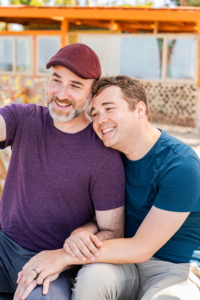Over the last few weeks, we have carefully considered the right and just ways for Leichtag Foundation to communicate about what are only the most recent atrocities after decades and centuries of systemic racial inequity and injustice in this country. Immediately after the murder of George Floyd, we communicated that we would start by uplifting Black voices as we worked internally to develop actions to which we can commit.
First, we say clearly. Black lives matter. We’re taking a hard look to change our internal practices that may run counter to this declaration, to advance our role in the community to reflect and actualize this value, and at how we steward our resources to clearly convey it through our actions in addition to our words.
Juneteenth falls this week bringing increased eagerness to acknowledge and uplift this holiday that celebrates the formal end to chattel slavery in America. In the spirit of this milestone, we commit to building an anti-racist Leichtag Foundation. We commit to building an anti-racist Jewish community.
We recognize that pathways for organizations like ours with wealth, power and privilege to demonstrate allyship with communities of color result in deeply needed empathy. But expressing our empathy and lending our voice isn’t enough. Embarking on an intentional path of work only starts there. We commit to better understanding what is required of us to advocate for Black and non-Black people of color and dismantle the structures that oppress them.
The first step in our goal to build an anti-racist organization will be to engage in a stakeholder assessment to gauge where Leichtag Foundation is now on this journey and to guide us in developing and publicly releasing metrics within the next six months for how we will improve. The assessment, to be conducted by an independent people of color-led entity, will solicit candid, confidential input from our staff, grantee partners, and other stakeholders. We will report regularly and publicly about our process in achieving these metrics.
As we pursue a shared goal of building an anti-racist Jewish community, we will check in with and expand our relationships with the leaders of Black communities, leaders and organizations in the Jewish communal field, the philanthropy field, and beyond.
We will support our partner local Jewish community organizations in building capacity for their efforts to become anti-racist; creating guidelines for their internal accountability in these efforts; explore meaningful and impactful ways to engage in participatory Black-led giving, and invest in leadership development and recruitment of people of color for senior professional positions in our local nonprofits.
We will continue to share our learnings, commitments, metrics and progress through social media, blog posts, videos and other media to hold accountability for ourselves and to help provide our community with tools as well.
We are committed to implementing change at Leichtag Foundation, and levering our influence as a funder in the community. Hineni. We are here, we take note. Lech L’cha, we are taking immediate steps to act.




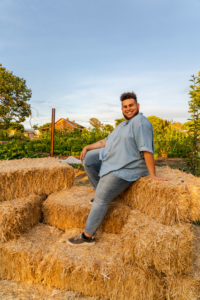 Black, Jewish and Queer. These three identities weave the fabric of who I am, but it took a long time to believe that they could exist together.
Black, Jewish and Queer. These three identities weave the fabric of who I am, but it took a long time to believe that they could exist together.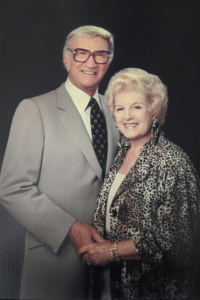 Lee and Toni Leichtag established the Leichtag Foundation in 1991 following the sale of their business. Lee and Toni were lifelong entrepreneurs with a passion for innovation and for supporting talent. They believed that only with big risk comes big reward. Both born to families in poverty, Toni to a single mother, they strongly believed in helping those most in need and most vulnerable in our community. While they supported many causes, their strongest support was for young children and the elderly, two demographics who particularly lack voice in our society.
Lee and Toni Leichtag established the Leichtag Foundation in 1991 following the sale of their business. Lee and Toni were lifelong entrepreneurs with a passion for innovation and for supporting talent. They believed that only with big risk comes big reward. Both born to families in poverty, Toni to a single mother, they strongly believed in helping those most in need and most vulnerable in our community. While they supported many causes, their strongest support was for young children and the elderly, two demographics who particularly lack voice in our society.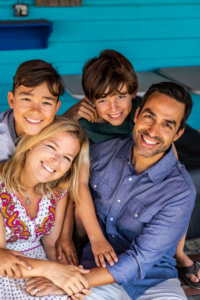 Lifelong Baltimoreans, Rabbi George and Alison Wielechowski and their sons, 11-year-old Lennon and 9-year-old Gideon, are more than pursuing the good life in Southern California. Having moved to San Diego more than three years ago, they are fulfilling a lifelong dream.
Lifelong Baltimoreans, Rabbi George and Alison Wielechowski and their sons, 11-year-old Lennon and 9-year-old Gideon, are more than pursuing the good life in Southern California. Having moved to San Diego more than three years ago, they are fulfilling a lifelong dream.
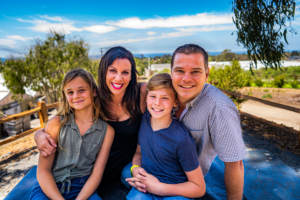
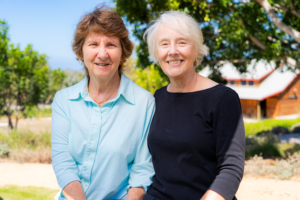
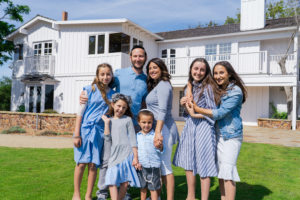
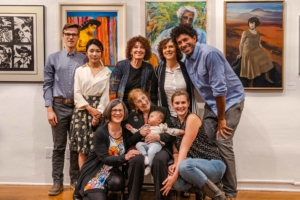
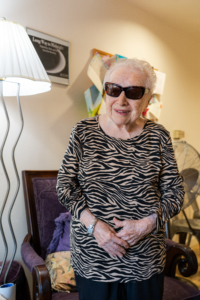
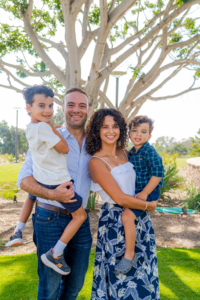
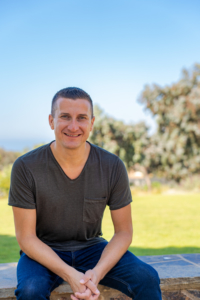 You would think that as the executive director of San Diego LGBT Pride, Fernando Zweifach López Jr., who uses the pronoun they, has done all the coming out they possibly can. A queer, non-binary individual who has worked for many years on civil rights issues, López also speaks openly and often about their father’s family, Mexican-American migrant workers who tilled the fields of rural California.
You would think that as the executive director of San Diego LGBT Pride, Fernando Zweifach López Jr., who uses the pronoun they, has done all the coming out they possibly can. A queer, non-binary individual who has worked for many years on civil rights issues, López also speaks openly and often about their father’s family, Mexican-American migrant workers who tilled the fields of rural California.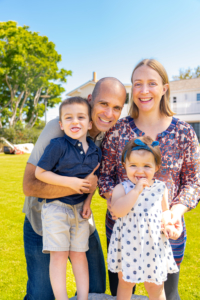 Stacie and Jeff Cook understand commitment. They live it.
Stacie and Jeff Cook understand commitment. They live it.